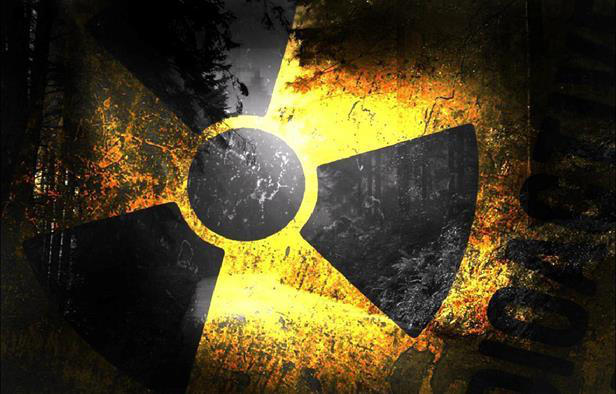jassemajaka@gmail.com
Lebanon’s radioactive unknown
Ana Maria Luca
After several shipments of merchandise were found to be radioactive, the Lebanese government needs to answer some important questions
Over half a ton of sanitary towels with radioactive emissions were confiscated last week at the Beirut Airport. The cargo, found by the Lebanese Atomic Energy Commission to exceed 35 times the radiation limit, consisted of radioactive maxi pads from China. Lebanese Finance Minister Ali Hassan Khalil says they will be soon sent back to the exporter.
In a similar incident last month, FM Khalil the Customs Department at the Beirut Airport to send back a shipment of 98 cellphone covers that tested positive for radiation emission. Lebanese authorities did not reveal if it was alpha or beta radiation—which are easy to contain—or Gamma, which is the most dangerous.
It was FM Khalil who started the campaign against radioactive imported goods in Lebanon. The first incident occurred in January at the Beirut Port. Khalil announced then that several shipments contaminated with radioactive and poisonous materials were confiscated at Beirut Port and Hariri International Airport and included food, medicine, production equipment and cutlery imported from India. “Dangerous radioactivity stays for 85 years,” Khalil warned. “It is prohibited to turn Lebanon into a dump for poisonous and radioactive waste.”
The minister also requested all the seized shipments to be tested and then returned to the exporter. He did not, however, order an investigation into how these cargos came to be contaminated in the first place or how so many of them had reached Lebanon in such a short time. It has happened at least four times since the beginning of 2015.
The head of Khalil’s political party, Nabih Berri, filed a lawsuit against the companies who imported the goods. The move was made in order to proceed to a criminal investigation into the affair.
Four coincidences in a row, or smuggling
There are two possible explanations for the radioactivity detected in the sanitary pads from China or in the kitchenware, which came from India. One would be that both cargoes were exposed to radioactivity in their countries of origin. The second is that they were contaminated on the same cargo ship or plane because it was also transporting radioactive waste.
“I think the second is most probable,” nuclear physicist Jassem Ajaka told NOW. “I believe there is radioactive waste being smuggled into the region because there are countries in the region that need places to dump their waste. They have nuclear activities and they need to dump the remaining fuel somewhere. Lebanon is on the list of vulnerable countries,” Ajaka said. He added that any radioactive waste that might have entered Lebanon was probably dumped in civilian areas. “It could be anywhere. We just don’t know. Nobody has scanned Lebanon for radioactivity recently.”
Lebanon was scanned for radioactivity after the July 2006 War by a team of expertsfrom the United Nations Environmental Programme (UNEP) and no evidence of radioactivity was found. But because of regional skirmishes and political instability, Ajaka says things may have changed since then.
Pressure from the UN IAEA
Following the reported incidents, the International Atomic Energy Agency (IAEA), sent several notifications to the Lebanese government even offering assistance to build a proper storage facility for radioactive waste. To date, all of the identified cargoes and radioactive waste the Lebanese government has seized is in the custody of the Lebanese Army (LAF). It is unclear if the LAF is equipped to handle this type of hazard.
An IAEA spokesperson confirmed that the Agency has been pushing for Lebanon to build a proper storage facility. “Regarding implementation of Lebanon’s integrated nuclear security support plan, it was agreed that establishing a secure storage facility for radioactive material is the main priority for assistance. The IAEA is working with the government of Lebanon to establish such a facility,” the spokesperson told NOW. A law to build such a facility was adopted in Lebanon in 2005, but the facility itself, even with the assistance of the IAEA, is still in a project phase 10 years later.
On its website, the Lebanese Atomic Energy Commission (LAEC) announced that since 1999, it has been providing radiation control services and monitoring on the borders, with a total of nine checkpoints located at the sea ports, land ports and the airport. The agency’s experts also pay random visits to the scrap yards across Lebanon to try and identify possible radioactive sources used in industrial facilities and which may have been dumped without warning in civilian areas. The agency’s website alsowarns against the use of radioactive sources by civilians in Lebanon.
Ajaka says Lebanon has signed international agreements on nuclear waste and is obliged to install filters that can detect radioactivity. However, the government does not have the equipment to deal with the matter properly. “I saw the men who unloaded a cargo in the harbor. It was a shipment of kitchenware that turned out radioactive. They were not wearing any protective suits. Not even radiation detector strips you stick on your chest pocket that let you know when the level of radiation is dangerous. Not even that,” Ajaka said.
Not on the agenda
NOW called the Lebanese Atomic Energy Commission (LAEC) a week ago and asked for an interview with whoever was available to speak on public safety and radioactive waste in Lebanon. We wanted to know how it is that there hasn’t been scan by the Lebanese government—whether it was related to lack of funding or otherwise. NOW made numerous attempts in this regard and was told someone would respond. At the time of this writing, no one from the LAEC has gone on record.
However, a governmental source who requested anonymity because they are not authorized to speak to the press, told NOW that there is a lot of good will at the LAEC and that the Agency has very good personnel. “But, as always, these things cost a lot of money, and, at the end of the day it’s all political. Look at what is happening around the region and you’ll figure out who has an interest in dumping radioactive waste in Lebanon. Of course, this is all speculation. We just don’t know for sure,” the source said.
An article in the Lebanese daily As Safir has reported that “gangs and mafias” have been smuggling radioactive products from Syria and Iraq through illegal crossings on the Lebanese border.
NOW also called several environmental NGOs, but none of them have programs on radioactive waste of any kind. “It’s not really on our agenda,” one NGO employee told NOW over the phone. “We just deal with household waste,” another NGO worker told NOW.
No awareness
Ajaka says that the level of awareness on radioactive hazards is very low in the country. He laughs bitterly, remembering an incident when he was nearly irradiated himself: “So there is this guy I used to know who comes to my office and tells me: I think I did something stupid. I took something from AUB.”
“What?”
“I don’t know, but I think it’s dangerous.”
“What did it look like?”
“Well, it had all these beams and lights. It was pretty.”
“Oh, Lord. It’s a radioactive source! Where did you put it?”
“In the attic.”
“Oh, Lord. You have kids! For how long did you have it?”
“One or two years!”
Ajaka says that after two years with a radioactive source in the attic, the man was by then likely radioactive himself. “There is absolutely no awareness about such hazards in Lebanon. I understand why he might have taken the radioactive source, but how nobody noticed is the real problem. How do you leave a radioactive source unprotected? We need that scan. And then we need a table with how much radiation we’re dealing with—a table with the numbers. At least we’d know: if it’s dangerous, we leave!”


